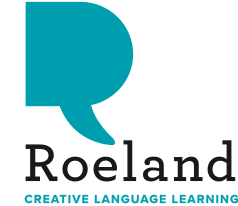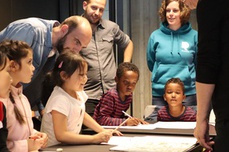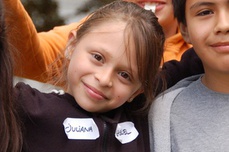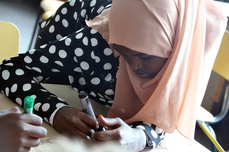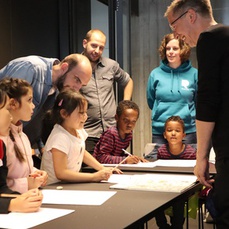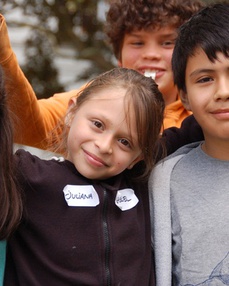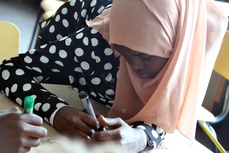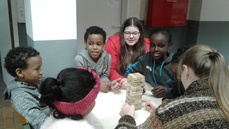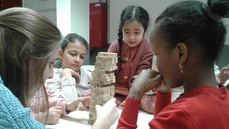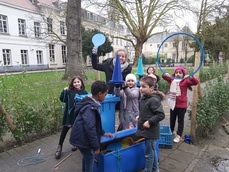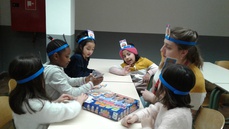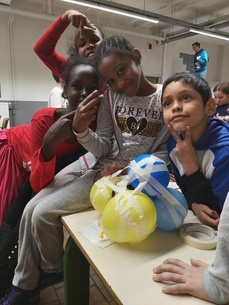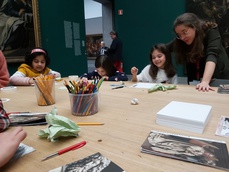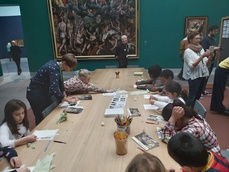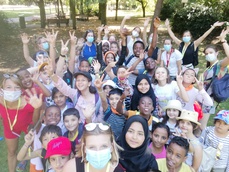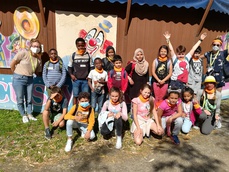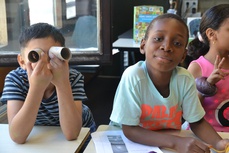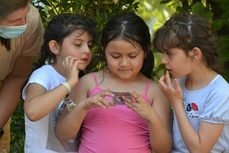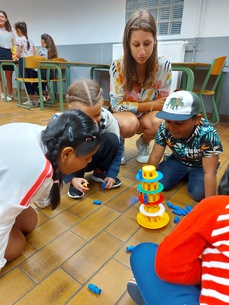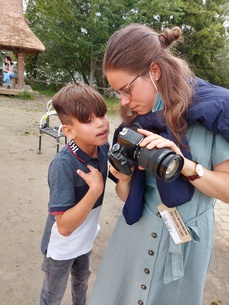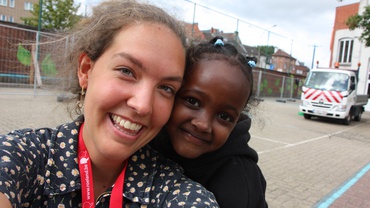
“About five years ago, I saw a posting on Facebook, asking for people willing to volunteer as a Dutch teacher at day camps for children with a migration background (NT2). I was excited right away”, volunteer Janne says. “I was on board immediately after my first camp. Now, I have more than ten camps on my track record.”
Janne: “Last summer, I was responsible for a day camp in Ghent (Rabot) and despite the harsh weather, we turned the event into a super cool experience! On Monday we had just met, but by the end of the week we were one merry band of happy campers.”
A merry gang.
“Which is self-evident, after all the adventures we experienced together: a trip to the park, singalongs until our voices went hoarse, science experiments that blew our socks off, a batch of delicious cookies we baked ourselves, … This one morning, we decorated the dining room, and we invented a variety of assignments to design constructions that would prevent an egg from being cracked in case the roof should come down. And we watched attentively a daily stage play about Luna who lost her daddy, and we produced solutions to help her out!”
No goody-goody language moments.
“Of course, we also focus on language moments, but do not imagine those are about a bunch of children sitting quietly on a school bench, listening to a boring teacher. The youngest have a wonderful time doing memory games, dominoes, colouring books, reading moments… They are often not aware of the fact they are actually learning a new language. The older children engage in a different kind of language games, for example solving a riddle to find the exit to an escape room!”
“Linking new Dutch words or a grammar lesson to a cool activity remains a challenge time and again, but that’s what makes being in charge of a language camp so interesting.”
“I think it’s quite a feat, to get ten tough looking boys to shout rather cheerfully the names of vegetables, fruits and parts of the human body, in order to get across the room by jumping from tile to tile.”
Picnicking across the world.
“Apart from these ‘prepared’ moments, the ‘free’ moments are also very satisfying. Skipping rope together, playing soccer, colouring with crayons, reading a book or playing a parlour game, chatting with the children in a leisurely manner… even if it means you have to explain things over and over again.”
“Lunch break is also one these moments: everyone sitting together cosily, picnicking with food that sometimes looks like it came from the other side of the planet.”
Everybody feels welcome.
All of our teachers connect with the children, which is why everyone feels welcome at the camp. The children know they can rely on the teachers if they feel the need to talk to someone.
An unforgettable week at language camp.
“These ingredients form the recipe for a successful week at camp: original and foremost funny language moments that make you forget you're learning new things, a broad range of activities you can choose from to channel your energy, and an enthusiastic group of friendly teachers, who always make sure to act in the children’s best interest.”
“And last but not least: the children, of course! It is a heartwarming experience to see the progress they make over a brief period of time, and to feel their thankfulness for it. My advice to everyone is to sign up for one of our day camps as a teacher.”
